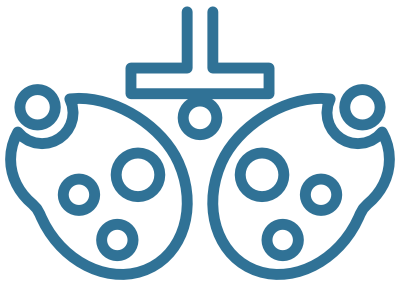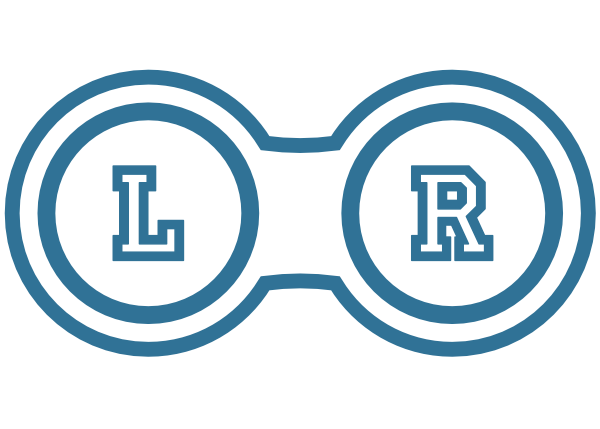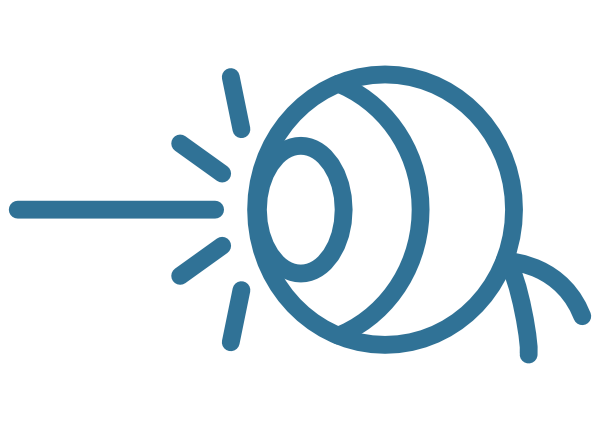Having clear vision is essential to learning. Research has shown that 80% or more of what is presented to your child in the classroom is presented visually.
To ensure that your child possesses the visual skills necessary to excel in school, we need to be sure that your child has 20/20 vision and that any vision problems are corrected (with the use of glasses or contact lenses) and or treated (with vision therapy) appropriately. There are also, less obvious learning-related vision issues that you should be aware of.
Good vision is more than 20/20 visual acuity
Your child can have “20/20” eyesight and still have underlying vision problems that may be affecting their ability to learn and overall classroom performance. Visual acuity (how well your child can see letters on a wall chart) is one piece of the proverbial pie in testing the vision system of a child. There are many nearsighted children in Northern Colorado who may have difficulty being able to see the board in the classroom, but they read exceptionally well and excel in school.
Other important visual skills needed for learning include:
- Eye movement skills – If a child is able to smoothly and easily move their eyes across a printed page in a textbook.
- Eye focusing abilities – If a child is able to change focus from distance to up close and back again (for copying information from the board, for example).
- Eye teaming skills – If a child’s eyes work together as a synchronized team (to converge for proper eye alignment for reading, for example).
- Binocular vision skills – If a child’s eyes have the ability to blend visual images from both eyes into a single, three-dimensional image.
- Visual perceptual skills – If a child can identify and understand what it is that they see, judge how important it is, and associate it with previous visual information stored in their brain.
- Visual-motor integration – The quality of a child’s eye-hand coordination, which is important not only for sports, but also for legible handwriting and the ability to efficiently copy written information from a book or chalkboard.
- Deficiencies in any of these important visual skills can significantly affect your child’s learning ability and school performance.
Many children have vision problems that affect learning
There are many children in Fort Collins, Loveland and Greeley who have undetected learning-related vision issues. Today, research conducted by the College of Optometrists in Vision Development (COVD), 13% of children between the ages of 9 and 13 suffer from moderate to severe convergence insufficiency (an eye teaming problem that can affect reading performance), and as many as 25% of all school-age children might have at least one or more learning-related vision issue. Those are high numbers! If you suspect that your child may have a learning related vision problem please contact our office, we are more than glad to schedule an eye exam and see if we can help.
Signs and symptoms of learning-related vision problems
There are many signs and symptoms of learning-related vision disorders, including:
- Blurry distance or near vision, especially following reading or other close work
- Frequent headaches or eye strain
- Difficulty changing focus from distance to near and back
- Double vision, especially during or after reading
- Avoidance of reading, or unexplained dislike of reading
- Easily distracted when reading
- Poor reading comprehension
- Loss of place, repetition, and/or omission of words while reading
- Letter and word reversals
- Poor handwriting
- Hyperactivity or impulsiveness during class
- Poor overall school performance
If your child exhibits one or more of these signs or symptoms and is having problems in school, call us to schedule a comprehensive children’s vision exam.
Comprehensive children’s vision exam
For our patients from Fort Collins, Loveland and Greeley a comprehensive children’s vision exam includes tests performed in a routine eye exam, in addition to testing done to detect learning-related vision issues. These additional tests might include an assessment of eye focusing, eye teaming, and eye movement abilities (also called accommodation, binocular vision, and ocular motility testing). Also, depending on the type of problems your child is having, we might recommend other testing, either in our office or with a children’s vision and/or vision development specialist.
Vision therapy
If after the testing we find that your child does have learning related vision problems that cannot be corrected with regular glasses or contact lenses, we will probably recommend special reading glasses or vision therapy to help. Vision therapy is a schedule of eye exercises and other activities customized to each patient to improve their vision skills.
Vision and learning disabilities
If a child in Northern Colorado is struggling in school he or she could have a learning-related vision problem, a learning disability or both. Vision therapy is a treatment for vision problems; it cannot correct a learning disability. However, children with learning disabilities often times have vision problems that are compounding upon their difficulties in the classroom.
After your child’s comprehensive vision exam, we will give you a consultation in regards to an action plan for you and your child and see whether a program of vision therapy would be helpful. If we don’t provide the services we believe your child needs, we will be more than glad to refer you to a children’s vision specialist or education/learning specialist who does.
For additional information or to schedule an appointment, please call 970-204-4020 or click on the link on the side of the page.






